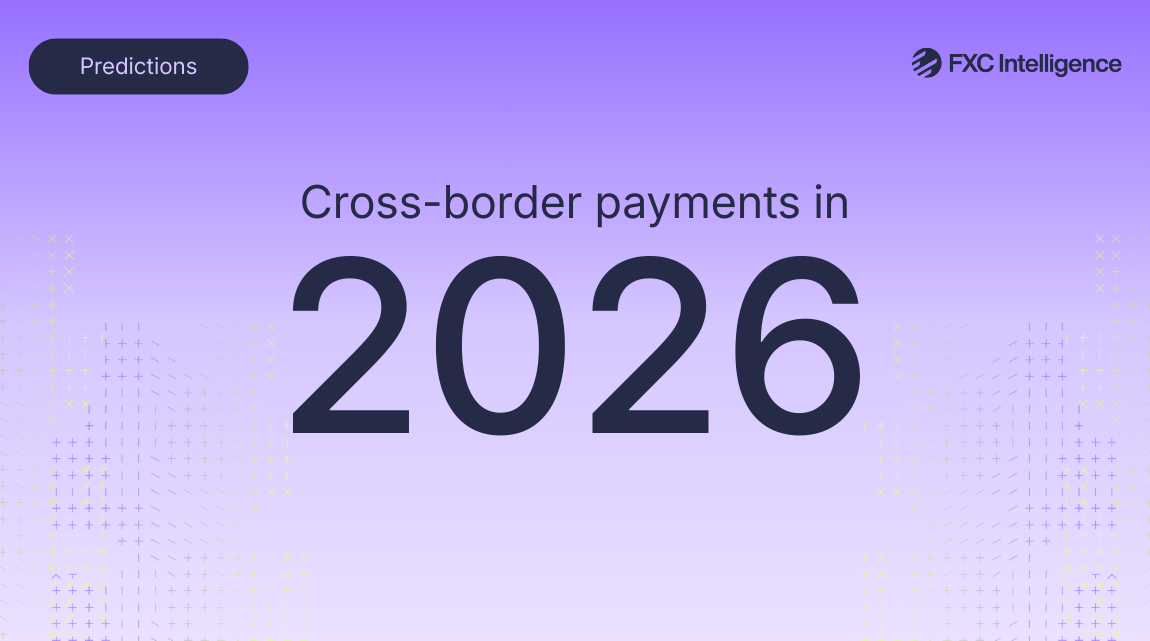B2B payments player Sunrate is one of cross-border payments’ rising stars. We spoke to CEO and Co-Founder Paul Meng to find out more about the Asia-focused company’s strategy.


Providing global payment and treasury management services to businesses around the world, Singapore-headquartered Sunrate is a fast-growing player in the B2B payments space.
Founded in 2016, the company has since built partnerships with companies that include Standard Chartered, Barclays and Citibank, as well as gaining principal membership of both Mastercard and Visa’s networks. In 2023, we also named Sunrate as one of our 30 Most Promising Cross-Border Payments Companies.
With offices in Shanghai, Hong Kong, Jakarta and London, as well as its Singapore HQ, the company focuses on Asia’s emerging markets, in particular Greater China and Southeast Asia, which represent a significant growing part of the global cross-border payments industry. Unusually for a company of its age, it is also seeing strong growth while turning a profit.
With this in mind, I caught up with Co-Founder and CEO Paul Meng to find out more about the company’s market position, growth and strategy.
Sunrate’s market position and customer focus
Daniel Webber:
How would you describe Sunrate’s core offering and its position in the market?
Paul Meng:
We are a B2B payment platform, focused on emerging Asia. That’s how we position ourselves.
Because the payment industry is C2C or C2B. C2B, I refer to an acquiring business like Adyen – what pays all those businesses, right? But B2B is more like facilitating SMEs to pay to a non-SME – that’s the business we are in.
There are players in Europe, for example Wise. But emerging Asia – which I use to refer to Greater China, Southeast Asia and potentially we are launching in the Middle East – that’s the market we focus on. So we are a B2B player in APAC.
Daniel Webber:
What are the typical industries of the customers that you work with?
Paul Meng:
A variety of industries. However, for verticals we look at what we call the import industries. This means SMEs based in Asia that buy globally. They could be a Chinese company importing whiskey from the UK or cherries from Chile, for example, and we help them to pay. That’s the first vertical, which we call the import trading company.
The second vertical we do is export. As you may know, APAC is still an export-oriented economy. APAC companies export stuff to Western countries, so we help those businesses to collect globally. We’ve been able to open collection accounts in many jurisdictions, including the US, Europe, the UK, Japan and many other countries.
We also do global travel. What I mean by global travel, it’s more like we help the travel agencies globally to pay their suppliers. So their suppliers can be airlines, can be hotels, that’s the global travel industry.
The last one is the education industry. We work with payment aggregators here in Asia, China, India. Those are sort of educational agencies, but they also help the students to pay. They aggregate the volume to us because we have the global payment infrastructure, so we help them to pay tuition fees, for example, to a UK university or to a residence in the UK. So those are the four verticals we have.
Product capabilities and differentiation: FX and beyond
Daniel Webber:
What’s unique about Sunrate’s product capabilities?
Paul Meng:
The core is the FX foreign exchange capabilities. The core team, including myself, know FX very well.
On top of the so-called spot FX, we also offer forward options, all those things. We have a license issued by the Monetary Authority of Singapore here, it’s called the CMS license. That’s quite unique in the market because we basically have a dual license in Singapore. One is the CMS I just mentioned, the other one is MPI, a Major Payment Institution license.
From an FX comparison perspective, we are different from many of our peers; even some of the smaller players in this market, they use us for foreign exchange. That’s one thing.
The second thing is we leverage the traditional banking channel, working with Citibank and JP Morgan for example, accessing local clearing networks. In the UK we work with Barclays so that we can do fast payments. But on top of that, we are a principal issuer of both Visa and Mastercard. So we issue commercial cards, but cards, for us, are like an alternative payment instrument.
What I’m trying to say here is we have different rails to help our customers to pay. We use what we call an adaptive approach, so whatever is best for the customer, we use that rail to pay.
Sunrate’s profitable growth
Daniel Webber:
Looking at some of your financials, the first thing that is very interesting to me is that you are making a profit, while many companies in this space are still investing or not profitable.
Paul Meng:
Yeah. Our growth last year was above 80% and the last year, 2023, our revenue was close to $100m.
We’re trying to maintain a long-term profitability of around 15% – that’s our target. We’ve been profitable while managing growth since about three years ago.
Daniel Webber:
How do you think 2024 is going to look for you?
Paul Meng:
I think it’ll continue to be good because we’re launching different product lines, as I mentioned with the CMS license. On top of that we are offering more OTC directives to our corporate customers.
Also on the card products, right now we do virtual cards, but we are launching physical cards in Hong Kong. That’s for corporates again, to help them to do some kinds of offline purchases. So we think we can still manage about 50% growth in 2024.

Revenue split by products and geographies
Daniel Webber:
And what’s the mix of the revenue? Is it mostly driven by FX or the card products?
Paul Meng:
That’s a very good question. Internally we have global payment, which refers to payment and collection. That counts for about 60% of our revenue. And there’s a card issuance business that counts for roughly 35-40% of our revenue.
Daniel Webber:
From a geographical split, what are the major countries?
Paul Meng:
The major regions are Greater China and Southeast Asia, though Greater China still counts more. I say Greater China because China is, in terms of foreign exchange, restricted. So more than 90% of our activities actually happen in Hong Kong.
Hong Kong and Singapore are the dual headquarters for us. Our global business headquarters is in Singapore and the treasury center is in Hong Kong. Those are the two most important jurisdictions for us.
Sunrate’s 2024 outlook and IPO prospects
Daniel Webber:
What are you excited about for 2024 for the business?
Paul Meng:
There are lots of things we’re excited about because we’re building a team in Indonesia, we are going to grow further in that market. We are upgrading our license in Indonesia and we are not only going to do the FX, we are also going to do some card business there. We are also getting a license in Malaysia and we hope to build a global operation center in Malaysia as well, because it’s so close to Singapore.
Also, for the global VCC [virtual commercial cards] business, which is a travel vertical, we formed a partnership with Sabre. They selected us as the supplier in APAC, so leveraging Sabre – Sabre is one of the three main GDS [global distribution systems] out there – we were able to do more card issuance business with the SMEs or travel agencies all around the world.
What else? We are going to start establishing in the Middle East. We’ve been talking with the ADGM [Abu Dhabi Global Market], so we’re likely going to get a license there. That’s testing the water of how we are going to do things in the Middle East. So those are things we’re very excited about.
Daniel Webber:
What’s the longer term view? Do you want to try to IPO?
Paul Meng:
Our existing investors – including Sequoia India (now known as Peak XV Partners), Softbank Ventures Asia, Saudi Aramco (Prosperity7 Ventures), just to name a few – all have expectations for us and I think the long-term goal from a capital market perspective is definitely an IPO.
Southeast Asia’s key opportunities
Daniel Webber:
What do you think the unique opportunities of the Southeast Asian markets are over the next few years?
Paul Meng:
The beauty of Southeast Asia is that there are different countries in Southeast Asia and different countries have different currencies. As you can imagine, the Thai baht is totally different from the Indonesian rupiah, so there’s lots of revenue opportunities for the inter-regional flow. That’s what we’re going to capture; that’s what we’re definitely excited about.
Also for Southeast Asia, it’s so close to China. Even though China is one of the biggest, maybe the second-biggest economy in the world, we see lots of Chinese manufacturing moving south. For example, a shoe factory may get established in Vietnam, so they would export from Vietnam. Leveraging that trend, we can definitely capture lots of flows on the back of that.
Competition in Asia’s B2B payments market
Daniel Webber:
Is there anything else that you want to mention?
Paul Meng:
Not much, but all I’m going to say is that the industry in APAC, it’s relatively new compared with the UK or Europe and after a few years we do see some concentration. There are probably just a handful of players that are meaningful in this market right now and we are definitely one of them.
Daniel Webber :
Who do you count as the key real competitive peers in the market for you?
Paul Meng:
We have different competitors in different verticals. For example, in the export vertical, we definitely compete with Ping Pong. But we don’t think LianLian is a meaningful competitor now.
In other verticals like card issuance, where we are doing travel, there’s a platform under Ctrip, we’re competing with them. But players like Aerotics, they have the card product but not with the travel industry yet.
And also the Singapore players, like Nium right? You probably know about it, but their business is more like building infrastructure for other financial institutions. We actually don’t have face-to-face comparison with them, except they acquired a business called Ixaris in New York that is card issuance for the travel industry. So for that we are competing with them.
So I don’t say we have 100%, not even 80% of close competitors, just because the different verticals mean we’re competing with different companies.
Daniel Webber:
Paul, this has been a pleasure. Thank you.
Paul Meng:
Thank you.
The information provided in this report is for informational purposes only, and does not constitute an offer or solicitation to sell shares or securities. None of the information presented is intended to form the basis for any investment decision, and no specific recommendations are intended. Accordingly, this work and its contents do not constitute investment advice or counsel or solicitation for investment in any security. This report and its contents should not form the basis of, or be relied on in any connection with, any contract or commitment whatsoever. FXC Group Inc. and subsidiaries including FXC Intelligence Ltd expressly disclaims any and all responsibility for any direct or consequential loss or damage of any kind whatsoever arising directly or indirectly from: (i) reliance on any information contained in this report, (ii) any error, omission or inaccuracy in any such information or (iii) any action resulting there from. This report and the data included in this report may not be used for any commercial purpose, used for comparisons by any business in the money transfer or payments space or distributed or sold to any other third parties without the expressed written permission or license granted directly by FXC Intelligence Ltd.



